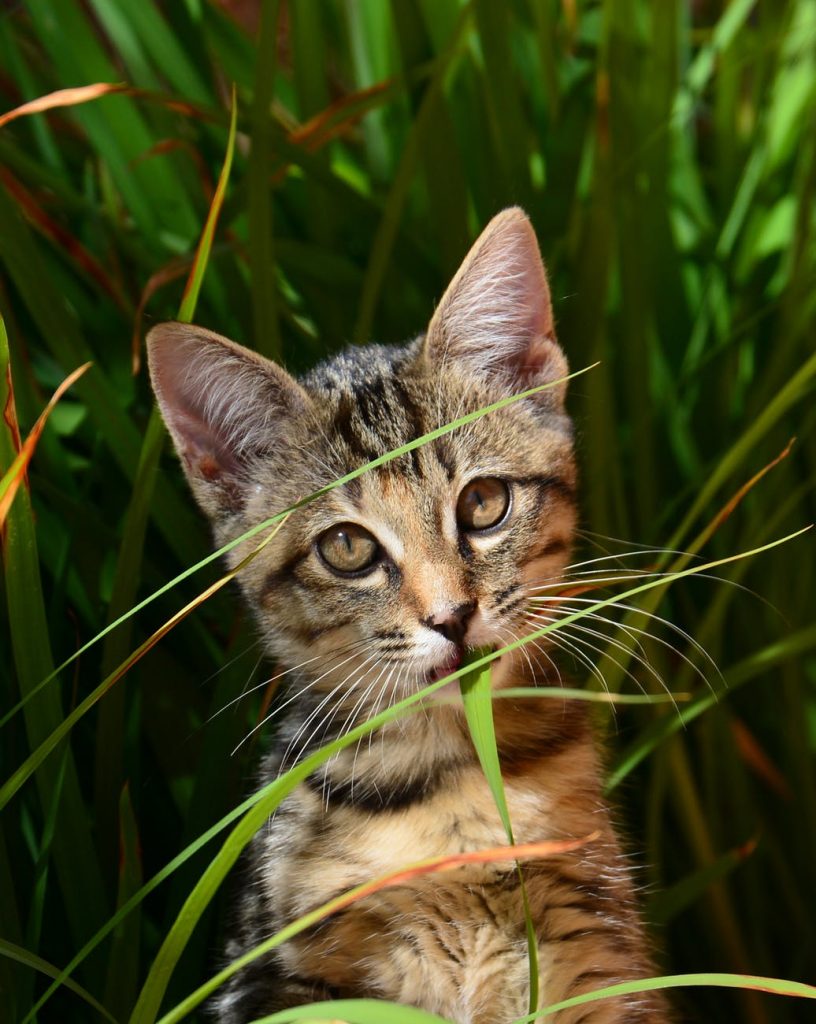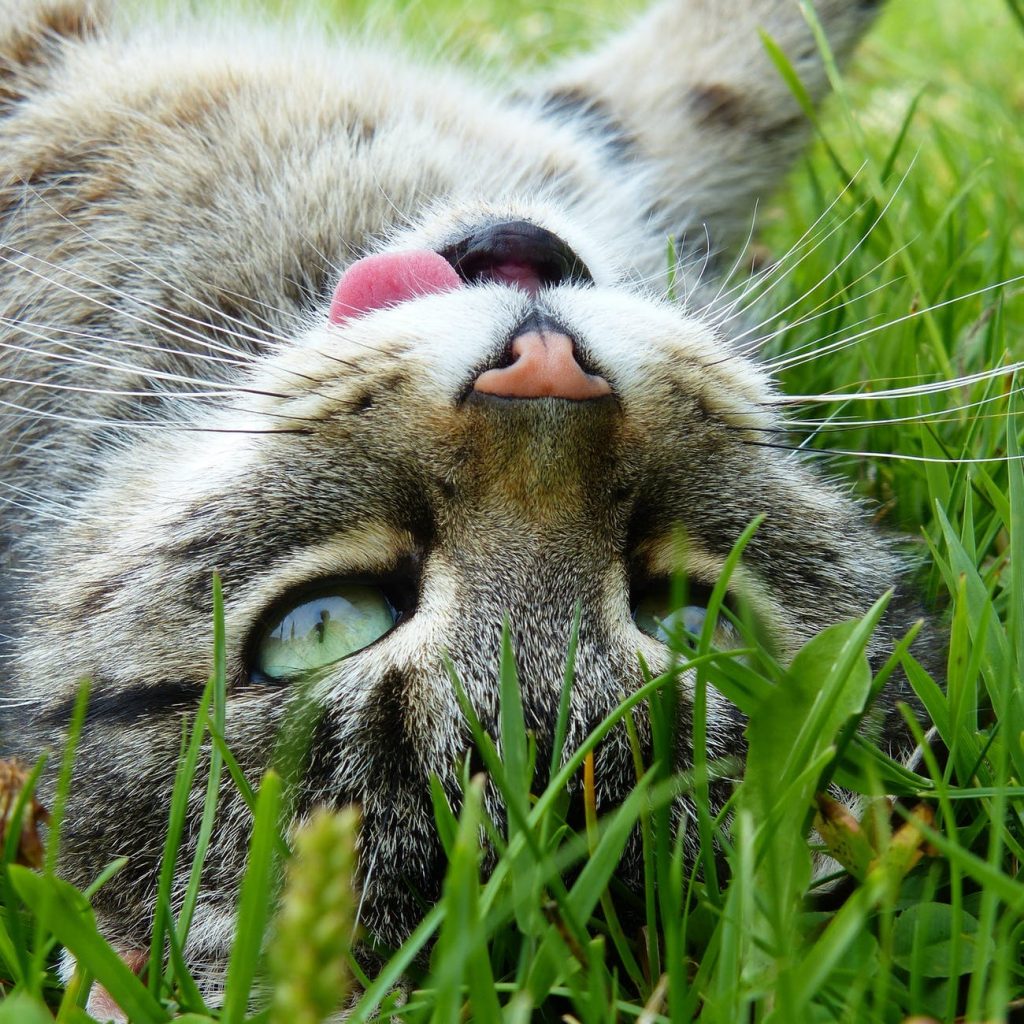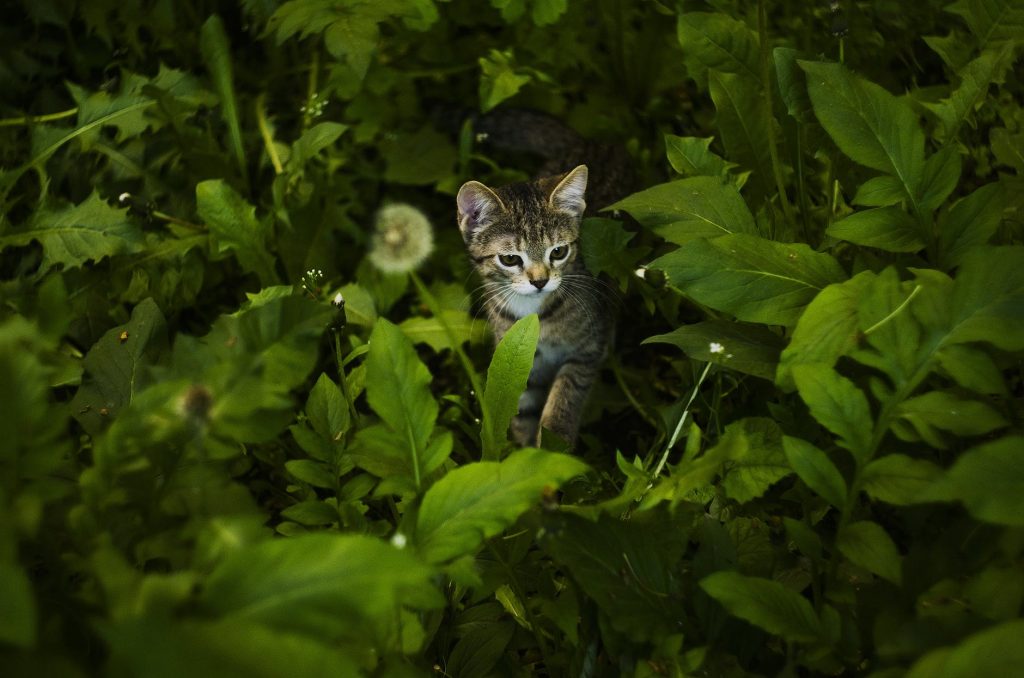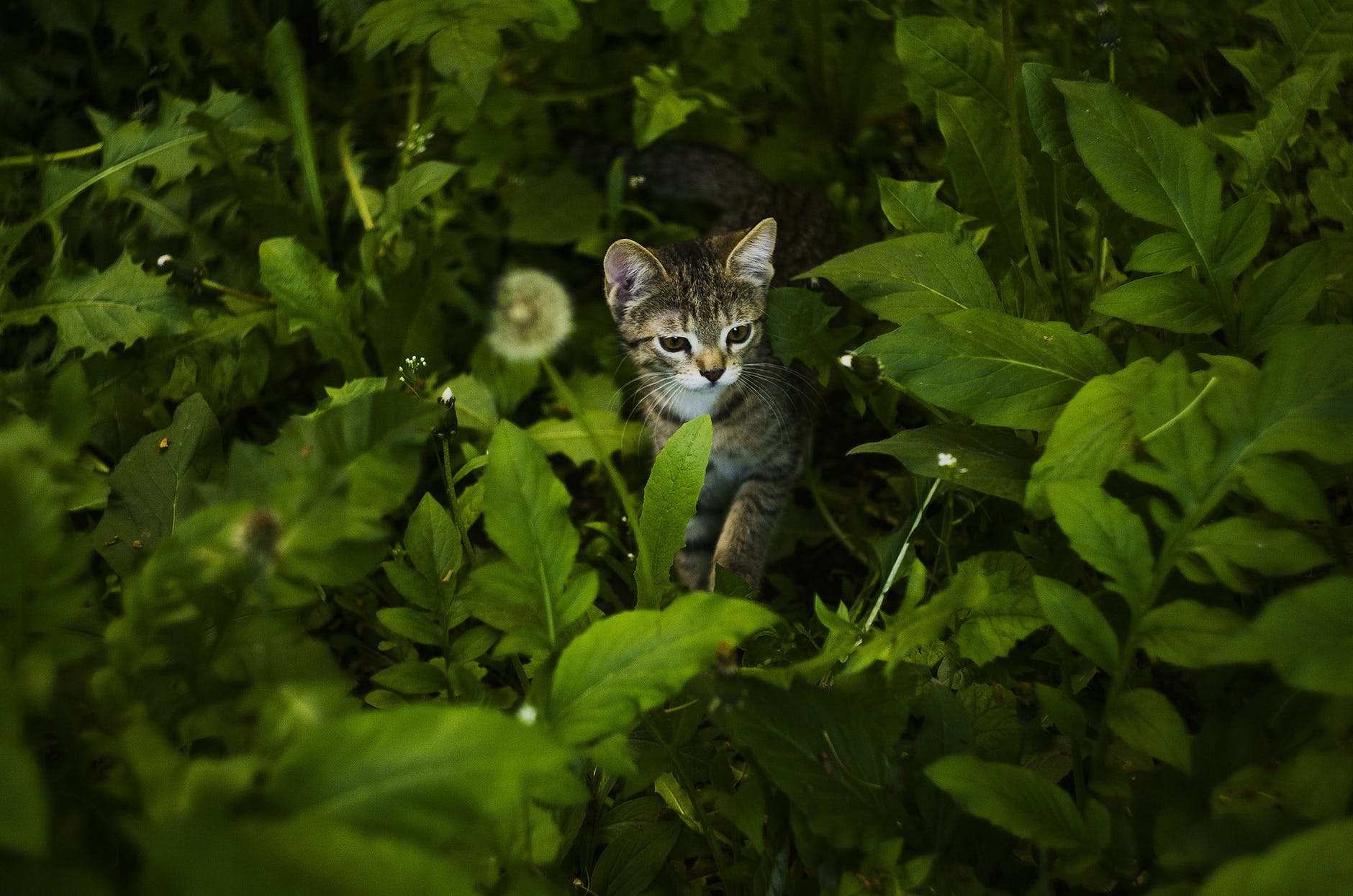We all know cats are obligate carnivores. They must eat meat in order to be in optimal health, and fulfil the inherited needs of a predator. They can only deal with trace amount of plants, like the ones passed down to them from their prey’s stomachs.
However, sometimes, we catch them nibbling on our houseplants and grasses. Why do they do that? This questionable action also may result in them vomiting, and it has us all scratching our heads on whether to bring them to the vet or otherwise.

‘Casually chewing on some grass.’
But fret not, this behaviour is totally normal for cats! The vomited wet hairballs on the floor may not look like it’s saying it, but taking in plant matters actually provides important health benefits to your cats. Here’s why.
It helps cats regurgitate indigestible matter and hairballs
Cats lack the enzyme to digest plant matters. Any large plant matters ingested will have to be pushed back out. This is normally done through vomiting.
The good thing about vomiting though, is that indigestible particles are also pushed out from the cat’s digestive tract. As cats are predators, this helps their body to get rid of feathers, fur, and bones that they previously ingested from their preys; as well as their own hair that they licked in during self-grooming sessions. These indigestible particles ball up in their digestive systems and are expelled as the lovely, oblong hairballs you know and love – hopefully on your non-absorbent floor.

‘No, I didn’t throw up on your carpet.’
As a laxative
When indigestible particles are pushed in way too deep inside their digestive tracts, they will have to be expelled through the other way. These ingested plant matters can help our cats break down indigestible particles and push them out, all the way to the litterbox.
To supplement their diet
Like a Mama cat’s milk, grass juice contains folic acid (Vitamin B9). This vitamin helps kittens to grow, while also aiding in the production of haemoglobin (a protein that transports oxygen in the blood). This helps them to maintain bodily functions and combat anaemia.
It is recommended to plant some seeds at a time so that your cat can have access to safe, edible grass when they feel like it. Munching on the neighbour’s grass is not recommended for your cat as nobody knows what pesticide, parasite or any harmful substances may be on it.
It is also important to research what houseplants are safe for your cat, so that they can feel better when they start to feel clogged inside, without suffering the toxic effects some plants may bring.

‘It tastes like grass milkshake.’

